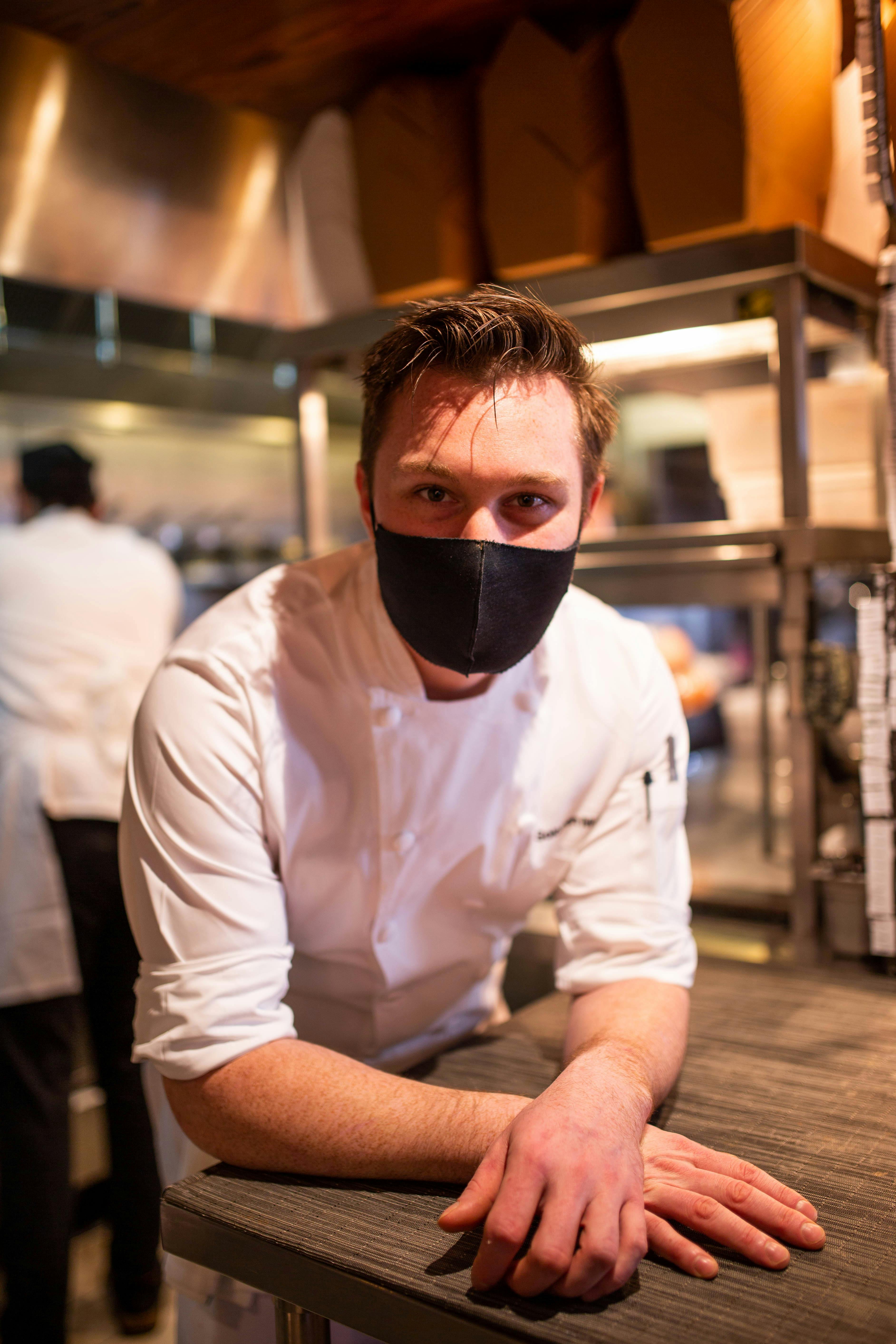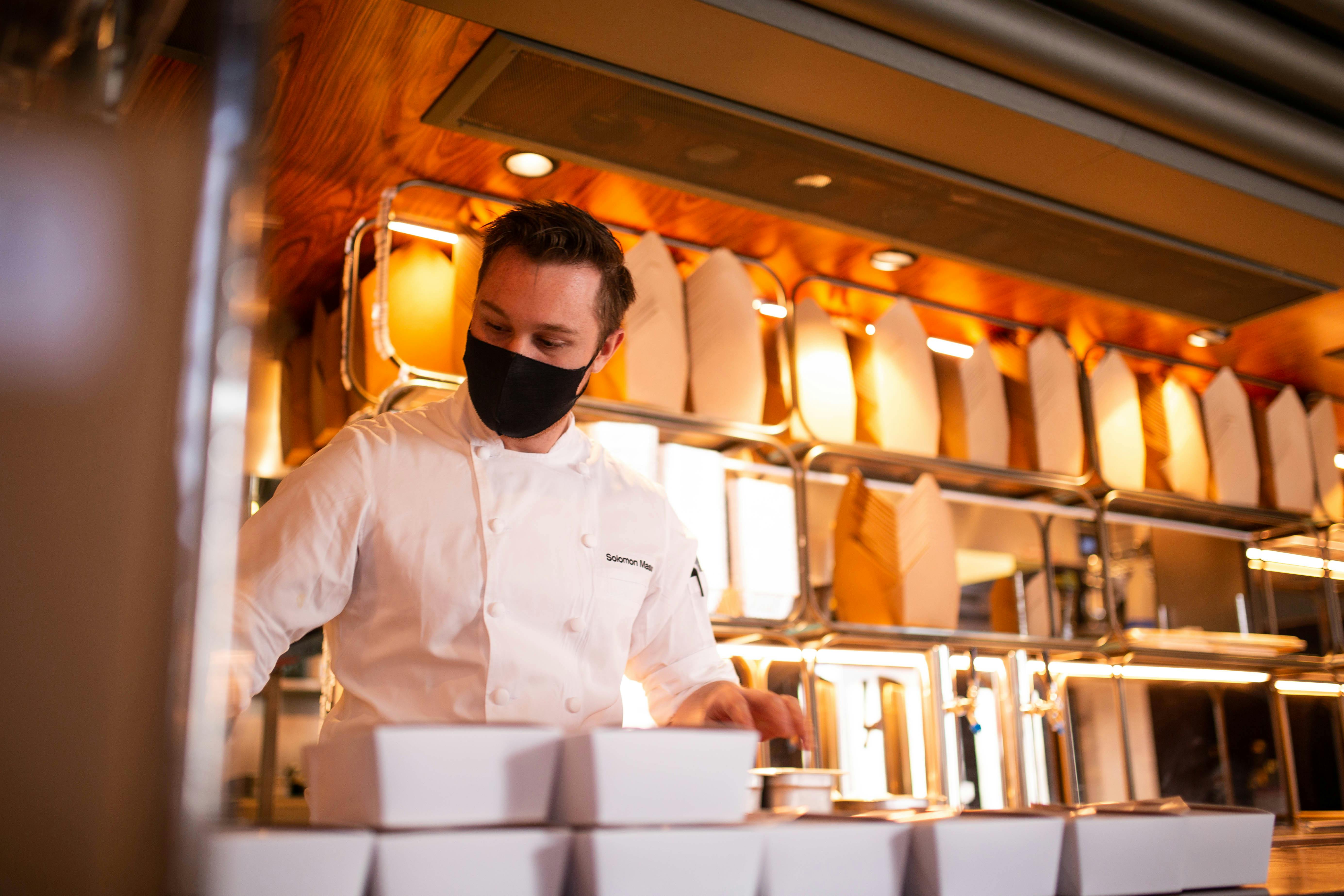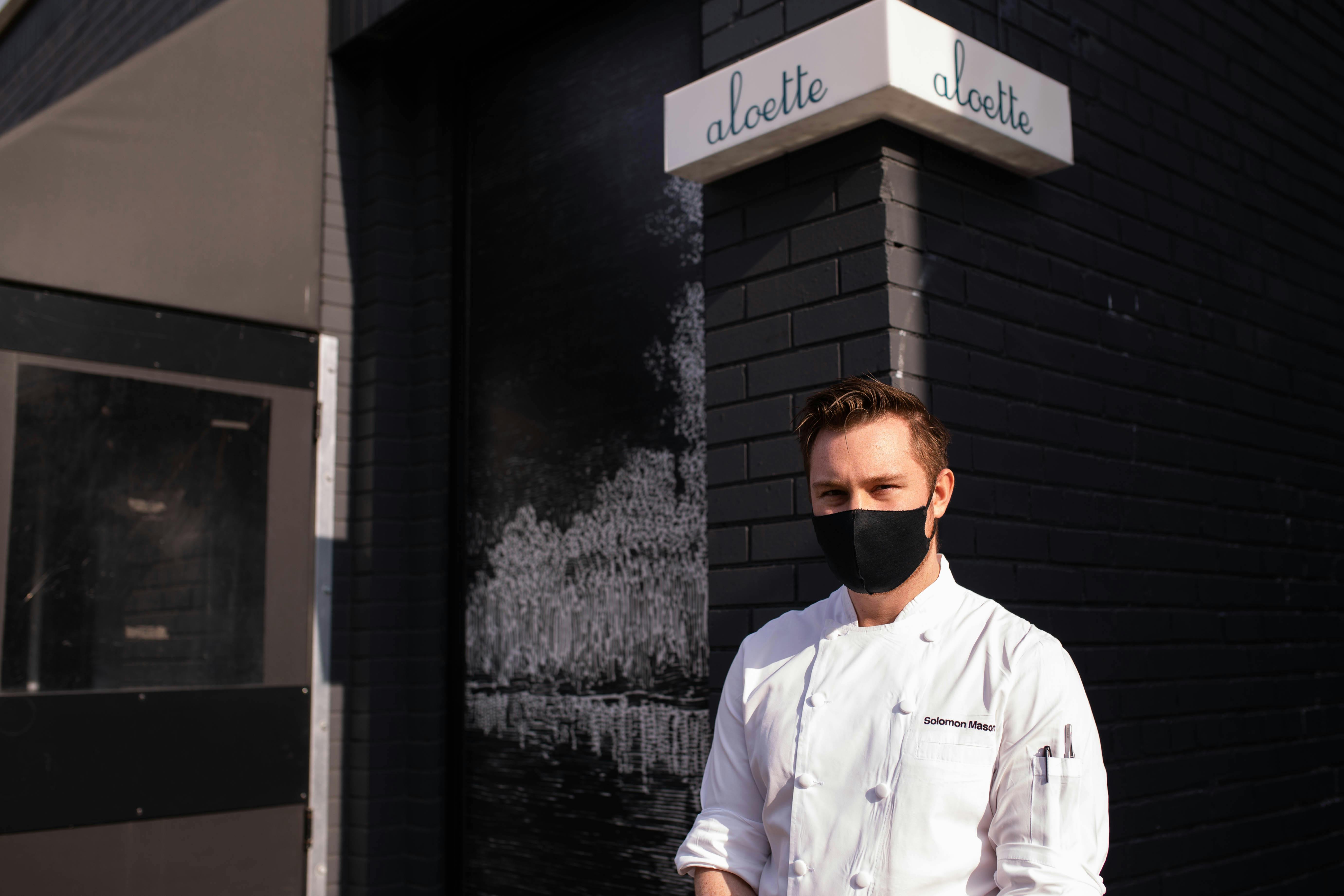
Restaurants in Ontario have struggled tremendously throughout the pandemic, and in a city with a food landscape as vibrant and populated as Toronto, the impacts may stick around for the long haul.
Solomon Mason is the Chef de Cuisine at one of Toronto’s most notable restaurants, Aloette––the younger sibling to the nationally renowned Alo. Mason has been Aloette’s CDC for three years and counting and has seen his establishment transform in the past year. The change has been tough for every restaurant, including Aloette, but Mason’s team has fully embraced it, and are making the best of what is available.
He arrives at the restaurant around 11 a.m. or noon and has a meeting with several people right off the bat, whether it be chef-owner Patrick Kriss or with a supplier they are working with to enhance their takeout experience. The space is limited, but with no use for the bar and the booths that line the windows at the front, Mason and his team have been using the extra operating space as effectively as possible.
The 28-year old chef from North Bay, Ontario, says that he’s been fortunate enough to keep a majority of his kitchen staff––a feat that has not been as forgiving for many spots across the city. The restaurant, which boasts a gorgeous and cozy diner-esque interior, was regrettably unable to bring back much of their front of house staff.

Solomon Mason stands where the bar and kitchen seamlessly meet at Aloette in Toronto.
In a study published in December 2020, Restaurants Canada reported that over 260,000 jobs were lost in the food service sector nation-wide, a whopping decline compared to other industries.
Job recovery in the food service sector is also low among others––the report suggests that approximately 81 per cent of total jobs across all sectors have been recovered, while the food service industry has recovered just 57 per cent since February.
Mason then moves on to prep-work for daily service, which has become incredibly busy with the implementation of takeout and delivery options. Aloette is available through multiple food service apps, including Uber Eats, DoorDash, Ritual and Tock.
With no priority for in-person dining, the focus shifted solely to the food, and they propelled themselves at the opportunity.
“There wasn’t a single day that we actually closed the restaurant,” Mason says. “None of us had any experience on the backside of using these apps, so we had no idea that we could be so busy.”
Prior to the pandemic, Aloette was known for only serving walk-in guests and cooking for a set amount of people at a time. The apps, however, provide orders that can come in at any time, which Mason says made him empathize with those who had been using apps as their main ordering platform. The chef says that the entire system changed when they pivoted to takeout only.
Luckily for Mason, the restaurant had already been preparing for a takeout service before the pandemic.

Solomon Mason checks and marks each takeout box at the bar of Aloette in Toronto.
“We had switched [to delivery and takeout] a week before things got super dark in Toronto,” Mason says.
The company had also been preparing to open up a takeout-centred restaurant on Queen Street prior to the pandemic, but it was consciously put on hold when Toronto entered lockdown in March 2020.
Mason says this was because every restaurant had already switched to takeout-only anyways, so they implemented their working takeout system into their already established location on Spadina Avenue.
“We already had these partnerships with all the delivery apps, we had already looked into all of the packaging and everything,” Mason says. “So for us, it was very quick to make that transition.”
The future of the food industry in Toronto, according to Mason, is that takeout is going to be a vital part for the months and years to come. He says his experience doing takeout has shifted his mentality around how we serve food, and that Aloette is already taking a huge step in the takeout direction.
“I think people are really starting to see the value in having food delivered to their door,” Mason says. “For myself and Aloette, takeout is gonna be a part of my life and it’s gonna be a huge part of the industry going forward. It’s not gonna go away.”
Proof of an Aloette expansion was teased on Instagram a week and a half ago by chef Kriss. The photo showed the storefront, and was later announced to be opening up in the heart of Liberty Village.
The new restaurant will offer no indoor dining, an aspect that has been incredibly synonymous with Toronto's best restaurant experiences. Mason says that Aloette has worked tirelessly to identify their most popular and established dishes, which has helped in opening their takeout concept space.
"The hardest part about opening a restaurant is knowing if it's going to work, knowing what your identity is," Mason says. "And because we've done that already for the last year at Aloette, we just wanted to create a concept that could expand our reach as a restaurant."
Mason says he is looking forward to continuing doing takeout with Aloette and visualizes that the Toronto restaurant landscape will eventually pivot to more takeout-friendly spaces.
Although his excitement to switch things up is prevalent, Mason expresses how he'll miss the way restaurants operated before.
"One of the best parts of working in a restaurant is hearing the buzz of the dining room," says Mason. "For me, as a chef, that's one of the best parts. And losing that sort of makes me feel sad."

Solomon Mason stands out front of Aloette in Toronto.
On the upside, Mason’s thoughts on the industry are positive, noting that with so much change happening now, Toronto could be exposed to a sort of renaissance of food from different innovators and cooks.
"We might see a lot of young energy coming into the city," says Mason, who himself came into the industry at a young age, working at world-renowned restaurants such as The French Laundry and Per Se by Thomas Keller.
He mentioned how so many restaurants have pivoted into bottle shops or are offering groceries, and how some institutions have turned to charity initiatives, even when they themselves have been harshly impacted by the pandemic, to support others in their community.
“If this is how we have to adapt to continue to have independent restaurants, then I’m all for it."










